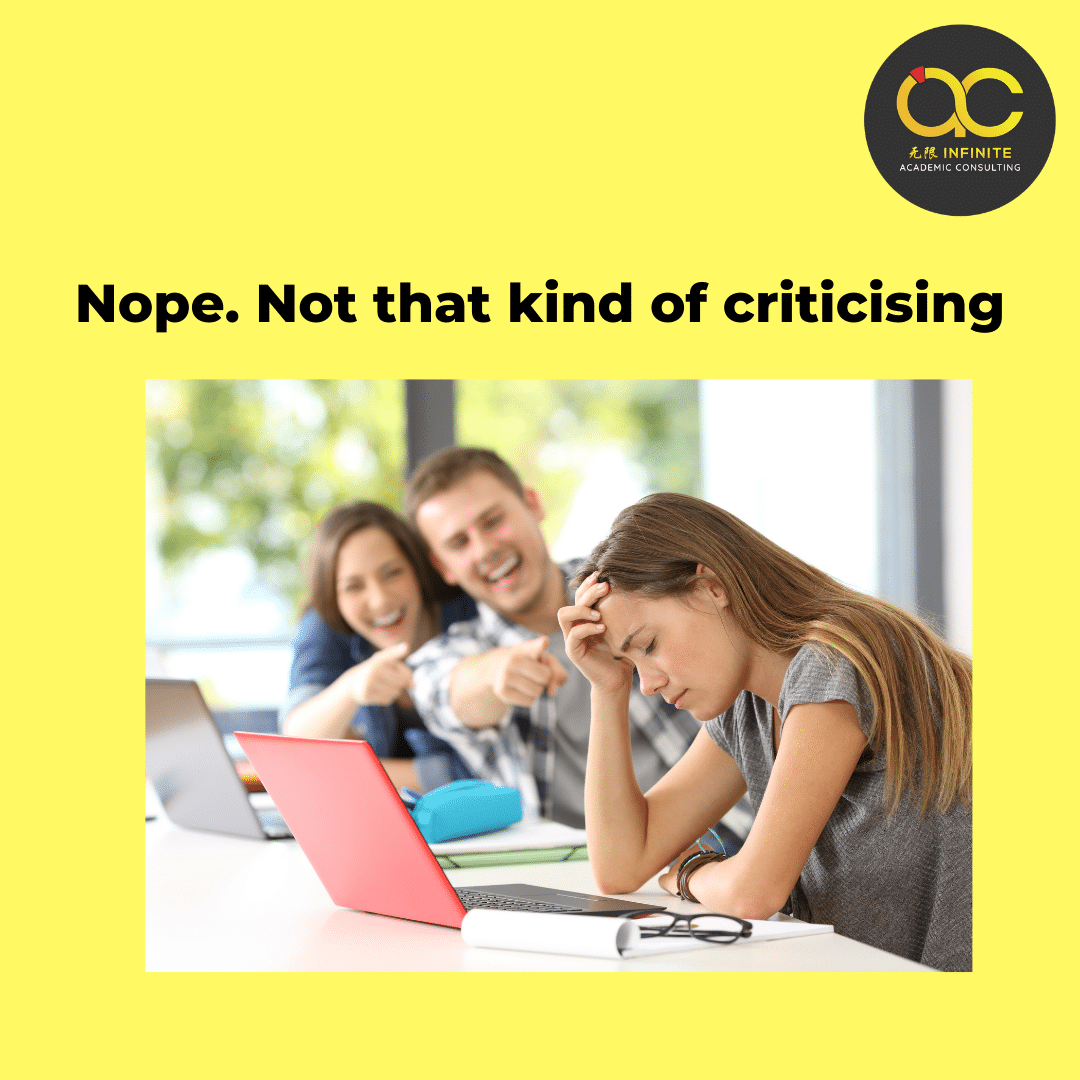
Analyse xxx. Discuss xxx. Criticise xxx. What the f*** are they? You might think, unlike mathematic formulas, there are no specific ways to devise a correct answer to these types of question. But what if I tell you that there are? Let’s debunk some of these buzzwords and see how we can break them down into something simple.
Analyse
Ahhh…the golden child of all assignment/exam buzzwords. This particular bad boy sits on the top of the list being the most common buzzword one might come across. What does it mean to analyse? First off, you have to be analytical. Analysing something doesn’t mean describing it. Here’s an example:
‘Joe is handsome and he is smart’ – Descriptive hence not analytical.
‘Joe is handsome because he inherited a good supergene from his parents. He also goes to the gym regularly and maintains a healthy diet which contributes to his overall handsome glow. Joe is smart because he earned his PhD in communications while also working part-time.’ – Analytical and critical.
The differences are quite jarring, aren’t they? One merely tells you a statement; the other explains why the statement is the case by delving into the reasons that form the statement. To analyse is to understand the various elements that form the statement. To analyse is also to show your readers that you are giving further thoughts into understanding why a particular statement/phenomenon is the way it is. When you are asked to analyse something in the future, remember to go beyond just describing a statement; always try to go the extra miles to uncover the intricate elements that created the statement/phenomenon in the first place.

Discuss
This is an easy slip up for a lot of students. Discuss implies some form of intellectual discussion/conversation. The discussion should be informed by previous research conducted by you the writer. To discuss means to talk informatively and critically, instead of just merely stating something. Here’s an example:
‘Joe is smart based on the research findings and therefore he should become the leader of the free world’. – Merely stating the research findings without actually discussing anything.
‘Based on our research findings, Joe has an IQ level of 5 million points, and he speaks five languages as illustrated by his previous publications. Joe also has a very high EQ level as indicated by our emotional intelligence score system, which makes him a perfect candidate as the leader of the free world. The only limitation to our finding is that Joe could be dangerously handsome which might affect his overall credibility.’

The first statement is merely a statement. When we discuss, we are not just stating our research outcomes. Instead, we should explain and elaborate on how we get there in the first place. And we also need to be critical and analytical, discussing our findings with the readers as to why this is the case. The golden rule here is: to discuss is to think about your subject of study from different angles and perspectives. It is a combination of examining and analysing your subject and presenting your findings in a critical manner. The second statement not only dissect the reason why Joe is smart and fitting to be a leader, but it also considers the limitation of Joe’s ability as well. Multiple angles? Scored.
Criticise
Some of you might go ‘hell yeah! I get to say how bad everything is about this subject matter!’ It’s easy to understand why we often misconstrue criticising as a form of criticism. Do you know that there’s a fine difference between critiquing and criticising? Criticism is often accompanied by disapproval without sound reasonings. Critique on the other hand is more about constructive reasonings and why/how things could work better by pointing out its limitations. Here’s an example:
‘Joe is too handsome for his own good and he is not that smart’. – Criticism / borderline personal attack.
‘Joe is a handsome person but that could also mean that his expertise could detract from his beauty. Joe is smart most of the time but at some critical level, he might not function as smart as most people do.’ – Critiquing/pointing out the critical and constructive reasonings.
When you are asked to criticise, stick to critiquing rather than harsh criticism. No one likes a grumpy person. Ever.

I hope this article helps clear out the confusion at times. If you are still semi-confuse though, don’t be a stranger! Get in touch today!
